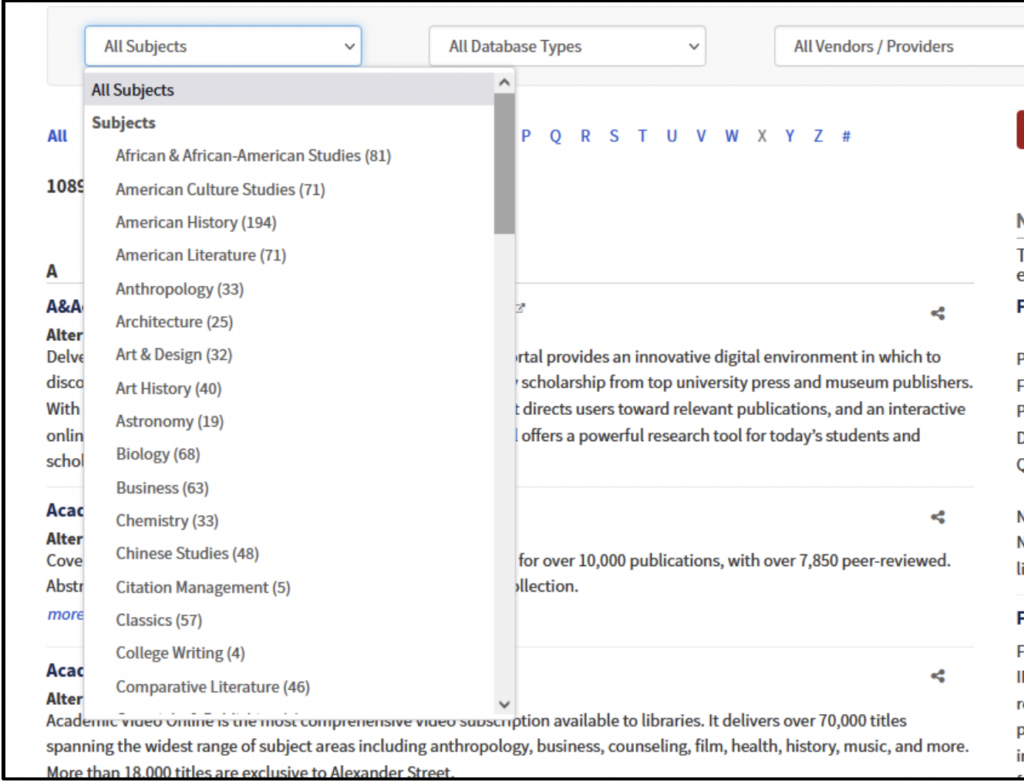
Resources for Students Writing Research Papers
It is that time of the semester when many of us are working on research papers. The University Libraries have a wealth of information and helpful resources to guide your work on your research papers.
Use Research Guides
For those that have never written a research paper and want to know more about the research process, there is the Conducting Research guide that has been created by librarians. This guide walks you through exploring an idea, finding background information, gathering current research, evaluating your sources, and citing your sources. Depending upon your discipline, there are also pages on the guide that can help you if you are doing research in the humanities, social sciences, or sciences.
Explore Topics
If you have a general topic but need to narrow it down further, you can use the University Libraries’ Encyclopedias (print and electronic) to find background information on your topic. The encyclopedias available range from a general topic to subject-specific (for example Encyclopedia of Cognitive Psychology). Finding background information can help you understand a bit more about the topic, further narrow your topic, or help you select keywords.
Search Databases
Once you have a topic you are going to research, your next step is to select keywords and create a search string that can be used to search for resources in the databases. You develop keywords from your topic. For example, if your topic is “What are the ethics around artificial intelligence and sentience,” you might select keywords of ethics, artificial intelligence, and sentience. To create a search string, you would then use the Boolean operators (and, or, not). So you might have a search string of “ethics and artificial intelligence and sentience.”
Now that you have a search string using keywords and Boolean operators, you can search in the University Libraries’ databases to find resources. For most research papers, you want to focus on scholarly/peer-reviewed journal articles. Scholarly/peer-reviewed articles are ones that have been peer-reviewed by other experts in the field. To learn more about scholarly/peer-reviewed journal articles, please see the Scholarly vs Popular Chart in the Conducting Research Guide.
All of the University Libraries’ databases are available on the A-Z Database list. As you start your research, you may want to start with some general, multidisciplinary databases, like Academic Search Complete or JSTOR. These databases cover many different topics and may assist you in further narrowing your topic. The results also might provide you with a lens for your research paper.
If you have already searched the general, multidisciplinary databases, you may want to move on to the Subject Specific Databases. You can access Subject Specific Databases by selecting the drop-down tab where it says “All Subjects.” You can then find a list of subjects. Once you select a subject, you will have a list of databases that cover that specific subject.

Cite Your Sources
As you are working on finding resources to use for your research paper, don’t forget to cite the information that you have found. Citing your Sources and Writing Styles is a great guide that you can utilize to help you properly cite your resources.
Ask for Help
You can contact a Subject Librarian for assistance with your research. Many of the subject librarians offer the ability to schedule a one-on-one appointment to get individual assistance with your research. During this appointment, they may help you select keywords, determine the best database(s) to use, and assist you in finding resources for your research.
As always, if you need additional assistance, please utilize the Ask Us Service, where you can chat with a librarian 24/7.
